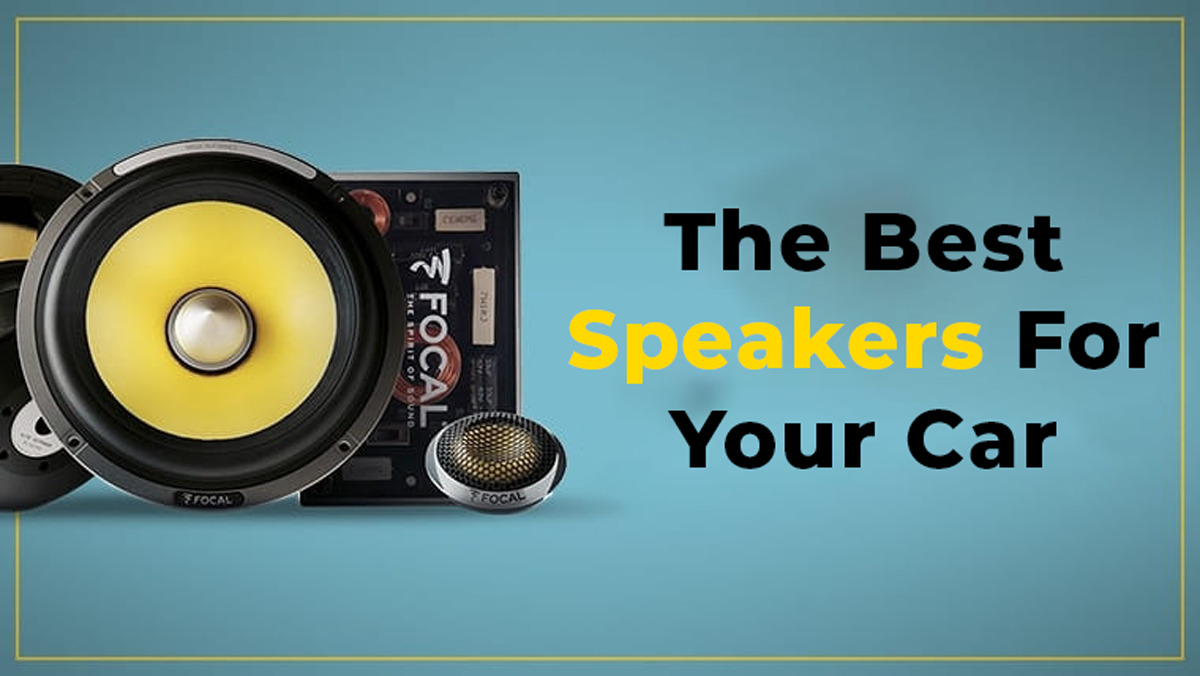Let’s face it; many persons often times become overwhelmed and confused when it comes to choosing the best speakers for their car. With the many shapes, sizes, designs and brands available this makes it even more frustrating and even more when you consider the technical specifications which many persons may not be aware of This article will present to you a brief guide about some of the things you should consider when choosing the best speakers for your car.
The very first thing you should do is consider the amount of room and vacant locations that the speakers can be placed in your car. This will go a long way in determining the size of speakers you chose and also the number of speakers you intend to install.
Next, you need to be aware of the power handling and sensitivity specifications of the speakers. Power handling refers to the amount of power, measured in watts the speaker can handle. If your car is equipped with a low powered audio setup then you don’t need to get high powered speakers. On the other hand, if you have amplifiers powering your system them you will need speakers with power handling specifications close to the output of the amplifiers. It is important not to be confused with some of the terms used for power handling.
Sometimes you might see manufacturers using terms like “music power” or “peak power handling”. These mean very little. Always ensure you look for the maximum RMS power handling. The RMS measures the power that can be handled by a speaker continuously, not just for a short time span.
Secondly there is the sensitivity specification of the speakers. The more sensitive a speaker is the less power will be required to power it and the less sensitive a higher quality speaker is, the more power will be required at the same volume. You need to consider the sensitivity especially when you are powering your speakers directly from the head unit without amplifiers. Head units normally have less power and thus they will require speakers that are more sensitive to properly power them. With amplifiers, there is not much to be concerned with although speakers with a lower sensitivity rating is recommended. Now we look at the type of speaker systems available. These can be divided into two types; full range and component based systems.
A Full range speaker system is one in which all the speakers are mounted into one frame. They consist of the woofer and tweeter and sometimes the midrange all mounted together into one unit. These are best suited if you are replacing the factory speakers that came with your car. With the different shapes and sizes available you can easily find one that fits the factory designed placements for the speakers.
Component based speakers are the ones designed for the best sound. They come separate. The woofers, tweeters and midranges are all separated. The sounds produced by this system are generally more realistic and the tweeters can be mounted in locations that provide the best imaging. In addition, the materials used to design component based speakers are of a higher quality than the full range system.
For both the full range and component based systems, the materials of the speakers are very important. For woofers, stiff light weighted material produces the best output. Most times synthetic films such as polypropylene is used and is very efficient. If you desire more bass then you should go for a mixture of polypropylene and mica which is often stiffer thus providing more bass.
Tweeters are mostly made of soft materials such as poly, textile blends, or silk which produces a very refined reproduction of sounds. Materials such as metal, ceramics, or graphite tend to produce more sudden sounds that are very bright. Lastly, woofers that contain a surround made of rubber will produce more bass as it allows the cone to move more freely. Following these guidelines can assist you a great deal in selecting best car speakers capable of providing you with maximum entertainment for your listening pleasure.



